Sustainable Development and Planning 2024
13th International Conference on Sustainable Development and Planning
![]()
23–25 September 2024
Seville, Spain
Overview
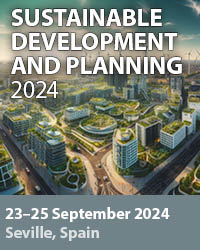
The 13th International Conference on Sustainable Development and Planning took place in Seville, Spain. The Conference was organised by the Wessex Institute of Technology (WIT), UK, represented by its Academic Director, Dr Stavros Syngellakis.
The conference series, which started in 2003 in Skiathos, Greece, is well-established and always attracts a wide international spread of delegates. The diverse topics covered by the conference often require the collaboration between different disciplines in order to arrive at optimum outcomes; they include studies of sustainable energy resources, new policies, community and social planning, waste management, climate change, environmental impacts and many others.
Opening of the Conference
The meeting was opened by Stavros who welcomed the delegates, then he went on to point out that “Sustainable Development and Planning” is one of the more successful conference series organised by the Institute.
Problems related to development and planning, which affect urban and rural areas, are encountered in all regions of the world. Accelerated urbanisation has resulted in the deterioration of the cities’ environment and loss of quality of life. Urban development can also aggravate problems faced by rural areas such as forests, mountain regions and coastal areas, amongst many others. Taking into consideration the interaction between different regions and developing new methodologies for monitoring current detrimental conditions as well as planning and implementation of novel mitigating strategies can offer solutions towards reducing pollution and the non-sustainable use of available resources.
Stavros then gave a brief overview of the present WIT activities. He pointed out its origins in the pioneering work for the development of a new numerical technique, the boundary element method (BEM). This method was developed into a powerful analysis tool for the solution of critical industry problems. It is applied by itself or in combination with other analytical techniques to provide solutions against engineering failures such as, for instance, sea or atmospheric corrosion and fatigue fracture.
The scope of the institute was subsequently broadened to provide knowledge transfer opportunities in other science and engineering areas as well on the ecology and the environment. Conferences remain WIT’s main instrument for knowledge transfer; they provide opportunities for social interaction, establishing contacts, direct exchange of views, information and advice plus some enjoyable moments during social events such as the dinner and other organised activities.
The Institute also continues to organise short courses in a wide variety of topics. It welcomes proposals from academics and engineers, experts in almost any field who wish to disseminate their knowledge. Another way in which WIT achieves dissemination of knowledge is by the publication of papers from conferences through its publishing arm, WIT Press.
The institute, in partnership with other academic institutions, awards annually two medals to prominent scientists in their fields. The George Green medal, jointly awarded with the University of Mississippi and supported by Elsevier, to a researcher having made significant contributions to the development of the boundary element method. The Prigogine medal was instituted with the University of Siena to the memory of Ilya Prigogine, Nobel winner in Chemistry, pioneer in linking thermodynamics to ecological processes. It is awarded annually to a leading scientist in the field of ecological systems who has been deeply influenced by Prigogine’s work.
Professor Carlos Brebbia was the founder and embodiment of the institute until his death in 2018. He pioneered the development of the boundary elements as a powerful analytical tool. His passing away was a great loss to everyone working with him but also to the wider academic community. His memorial was attended by many friends, fellow academics most of them, who referred to his personality and his achievements.
Prigogine Medal Award Ceremony
The 2023 Medal was awarded to Professor Søren Nors Nielsen from the Aalborg University, Denmark. It was presented to him by Dr Syngellakis who spoke extensively about Professor Nielsen’s academic background and achievements in the field of Ecology and the Environment.
Professor Nielsen presented a special lecture entitled “Formulating a sustainable management by learning from nature”.
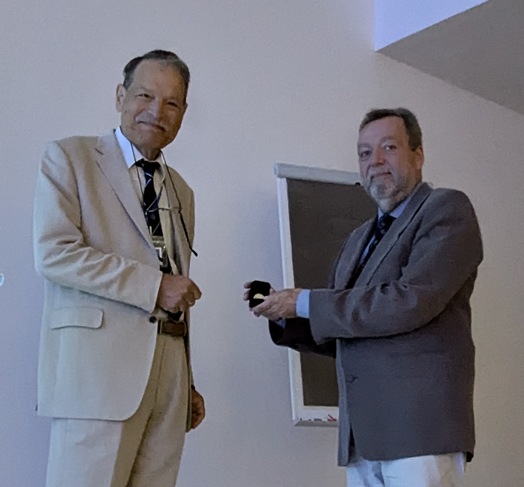
Conference Sessions
There were two special session organized during the conference:
- Energy-climate transition through transnational municipal cooperation – organized by Dr Monica Salvia and Dr Filomena Pietrapertosa. This special session included 9 presentations.
- Strategies for environmental sustainability organized by Dr Elena Rada. This special session included six presentations.
Invited Speakers
There were a series of invited lectures on advanced topics of research and applications, as follows:
- Sustainable developments goals and circular economy relationship roles in education and industry for waste collection implementation, by Dr Elena Cristina Rada, Insubria University, ITALY
- Assessment of the environmental performance of higher education institutes: the case of Italian universities, by Dr Marco Schavion, University of Padova, ITALY
- Towards sustainable cities: flora grown and traded in Salvador, Brazil, by Dr Isabel Maria Madaleno, University of Lisbon, PORTUGAL
- Public views on sustainability issues over a 33-year period in Idaho, USA, by Dr Robert Mahler, University of Idaho, UNITED STATES
- Defining a metric to evaluate the quality of urban climate adaptation plans: the ADAQA4GCoM framework, by Dr Filomena Pietrapertosa, National Research Council of Italy, ITALY
- Empowering local authorities to accelerate the clean energy transition: the local GoGreen project, by Dr Monica Salvia, National Research Council of Italy, ITALY
- Carrying capacity assessment in tourism: The case of Mykonos Island, Greece, by Dr Dimitris Prokopiou, University of Piraeus, GREECE
- A new perspective on urban architecture: streets above ground for better adaptation with nature, by Dima Legeyda, Newcastle University, UNITED KINGDOM
- Co-designing interventions to create awareness and reshape future in a Mexican semiarid agricultural community, by Dr Emanuele Giorgi, Tecnologico de Monterrey, MEXICO
- Nutritional life cycle assessment: a paradox or a pathway to a sustainable agro-food systems?, by Valentina Niccolucci, University of Siena, ITALY
- Carbon and environmental footprint of cities and communities: a Living Labs experience, by Dr Carlo Trozzi, Teche Consulting SRL, ITALY
A number of themes were pursued by the contributors to this conference. These include:
Sustainable development indicators and indexes; governance and policies, energy efficiency; sustainability in the built environment; sustainable mobility; city and community planning; rural areas development; waste management, natural resources management; environmental impacts; quality of life; carbon and ecological footprint.
There were numerous occasions for holding informal discussions during the coffee breaks and the complimentary lunches provided.
Conference Publication
Papers presented at this conference will appear in Vol. 262 of the WIT Transactions on Ecology and the Environment (ISSN 1743-3541). Papers presented at the meeting will be available Open Access in the eLibrary of the Wessex Institute (https://www.witpress.com/elibrary) from where they can be freely downloaded by any interested parties.
ISAC Dinner
The meeting of the International Scientific Advisory Committee (ISAC) of the Conference took place over dinner in the Restaurant La Taberna De La Dehesa serving traditional local cuisine. At the meeting, members of the committee were encouraged to advise WIT on the evolution of the conference by making suggestions for new topics, ISAC membership, future venues and other conference-related activities.
Conference Dinner
The Conference dinner took place at Restaurant Los Seises Seville set in a restored 16th-century palace in the old city of Seville. The participants could enjoy the best contemporary Andalusian cuisine, including an exceptional range of traditional starters. The restaurant offered beautiful views over the Seville Cathedral from its rooftop terrace. The evening was particularly appreciated by the participants.
Closing of the Conference
The conference was closed by Dr Stavros Syngellakis, who thanked the delegates for attending and hoped that they would consider attending the next conference in the series which is planned to be reconvened in the year 2026.

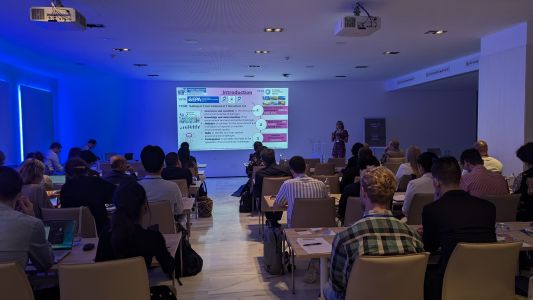
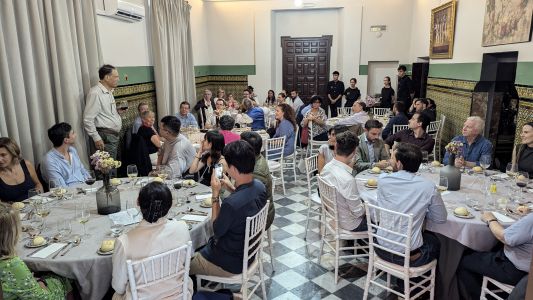
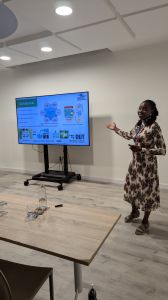

 Wessex Institute
Wessex Institute